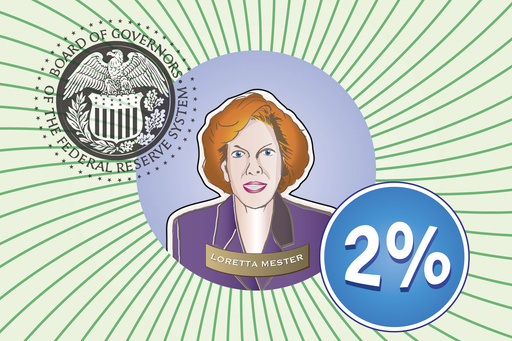Loretta Mester, who spent her entire career working within the Federal Reserve system, served as the president of the Cleveland Fed for ten years until her retirement on June 30. Throughout her tenure on the Fed’s interest-rate-setting committee, Mester was known to lean towards higher interest rates to combat inflation, earning her the label of a “hawk.” However, in a recent interview, Mester indicated that if inflation continues to decline as expected by her and other Fed officials, rate cuts should be considered this year.
Mester, aged 65 and holding a Ph.D. in economics from Princeton, started at the Fed’s Philadelphia branch in 1985 and eventually became its research director in 2000. She provided insights on the direction of inflation, changes within the Fed during her time, and reasons why many Americans still have negative sentiments about the economy.
According to Mester, there are encouraging signs of inflation decreasing, aligning with the goal of reaching a sustainable 2% inflation rate. She mentioned that the economy is expected to progress in a manner that could lead to rate cuts later this year, contingent on forthcoming inflation readings.
Reflecting on changes within the Federal Reserve, Mester highlighted the shift from Chair Alan Greenspan to Chair Ben Bernanke as a significant development. The Fed has become more transparent, emphasizing explanations for policy decisions and increasing communication with the public through press conferences and post-meeting statements.
Regarding consumer sentiment, Mester emphasized the impact of inflation on essential goods, particularly affecting individuals with lower incomes. While acknowledging a narrowing gap between wage and price growth since the pandemic, she noted that many are still struggling to cover their living expenses with their current wages.
When asked about concerns over the Fed’s independence in the event of Donald Trump’s reelection due to his past criticisms of the institution, Mester expressed confidence in Congress understanding the importance of the Fed making impartial monetary policy decisions free from immediate political influences.


